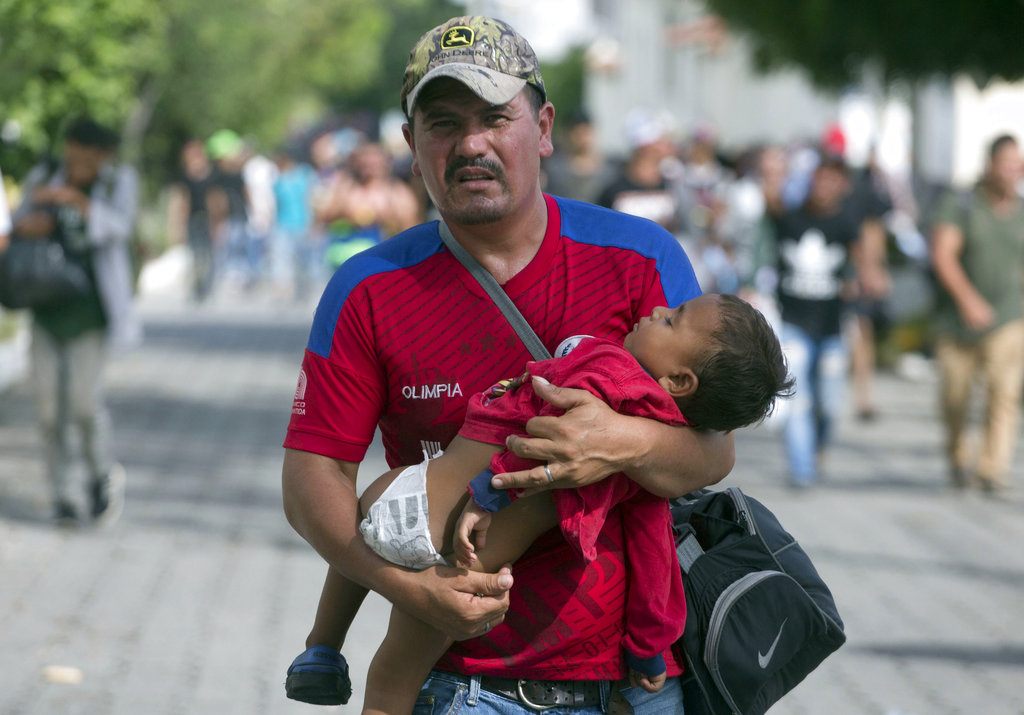Hundreds of Honduran migrants surged over the Guatemalan border under a broiling sun on Monday, hoping to make it to new lives in the United States, far from the poverty and violence of their home nation.
Police stopped the migrants at a roadblock outside Esquipulas for several hours in the afternoon, but the travelers refused to return to the border and were eventually allowed to pass.
They arrived in town as night fell, exhausted by the day’s heat, hobbling on blistered feet. Few carried food and some local residents began to organise to help feed them.
Some migrants asked for money, others passing a bakery were handed bread. Earlier in the day, the migrants arrived at the Guatemalan border singing the Honduran national anthem, praying and chanting, “Yes, we can.”
The group estimated at 1,600 or more defied an order by the Guatemalan government that they not be allowed to pass.
“We have rights,” the migrants shouted.
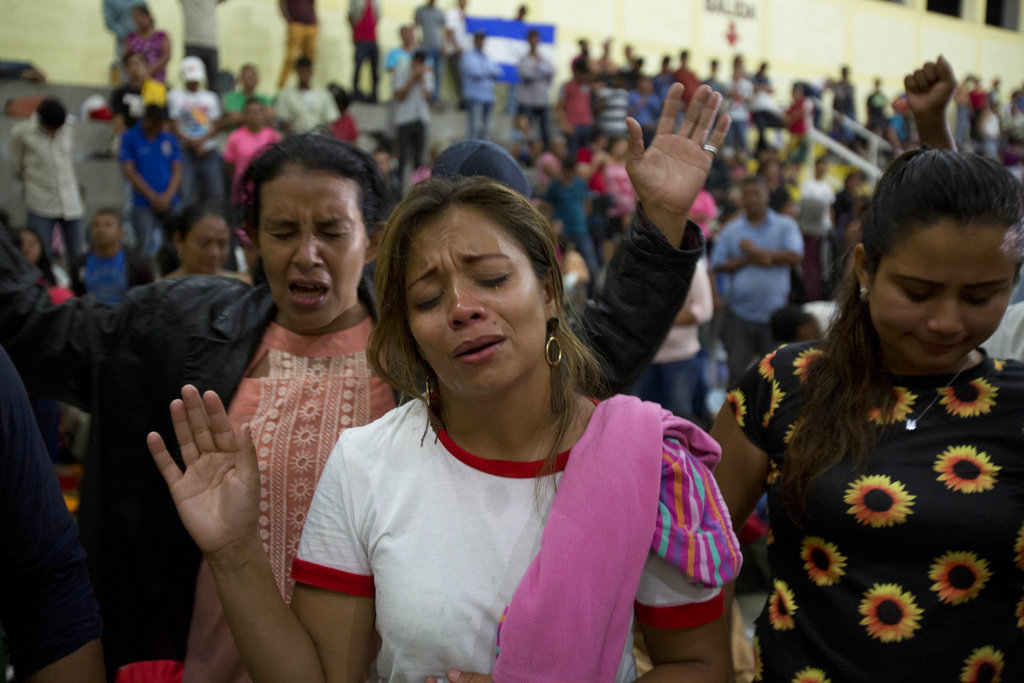
Honduran migrants pray at an improvised shelter in Chiquimula, Guatemala, on Tuesday. AP
Keilin Umana, a 21-year-old who is two months pregnant, said she was moved to migrate to save herself and her unborn child after she was threatened with death.
Umana, a nurse, said she had been walking for four days. “We are not criminals — we are migrants,” she said.
Many in the caravan traveled light, with just backpacks and bottles of water. Some pushed toddlers in strollers or carried them on their shoulders.
Carlos Cortez, a 32-year-old farmer traveling on foot with his 7-year-old son, said poverty back home made it impossible to support a family.
“Every day I earn about $5,” Cortez said. “That isn’t enough to feed my family.”
The caravan was met at the border by about 100 Guatemalan police officers. After a standoff of about two hours, the migrants began walking again. Outnumbered, the police did nothing to stop them and accompanied them several kilometers into Guatemalan territory.
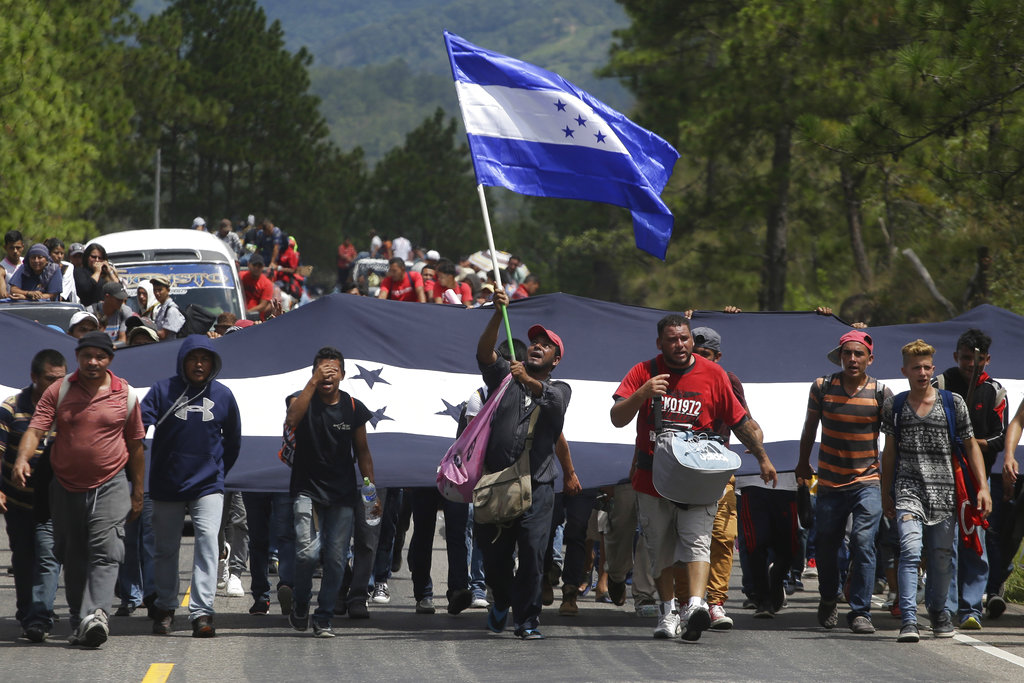
Hondurans march in a caravan of migrants moving toward the country's border with Guatemala. AP
Officers then set up the roadblock about 2 km outside the city of Esquipulas, where the migrants had planned to spend the night.
The migrants were stuck for about three hours. About 250 police kept them from advancing and told them they had to return to the border to go through immigration. The migrants refused to budge and it appeared they would likely sleep on the highway. But eventually, officers let them pass.
Some police and Guatemalan civilians offered the migrants water, and some locals drove Hondurans part of the way. Red Cross workers gave medical attention to some migrants who fainted in the heat.
The caravan began as about 160 people who first gathered early on Friday to depart from San Pedro Sula, one of Honduras’s most dangerous places, figuring that traveling as a group would make them less vulnerable to robbery, assault and other dangers common on the migratory path through Central America and Mexico.
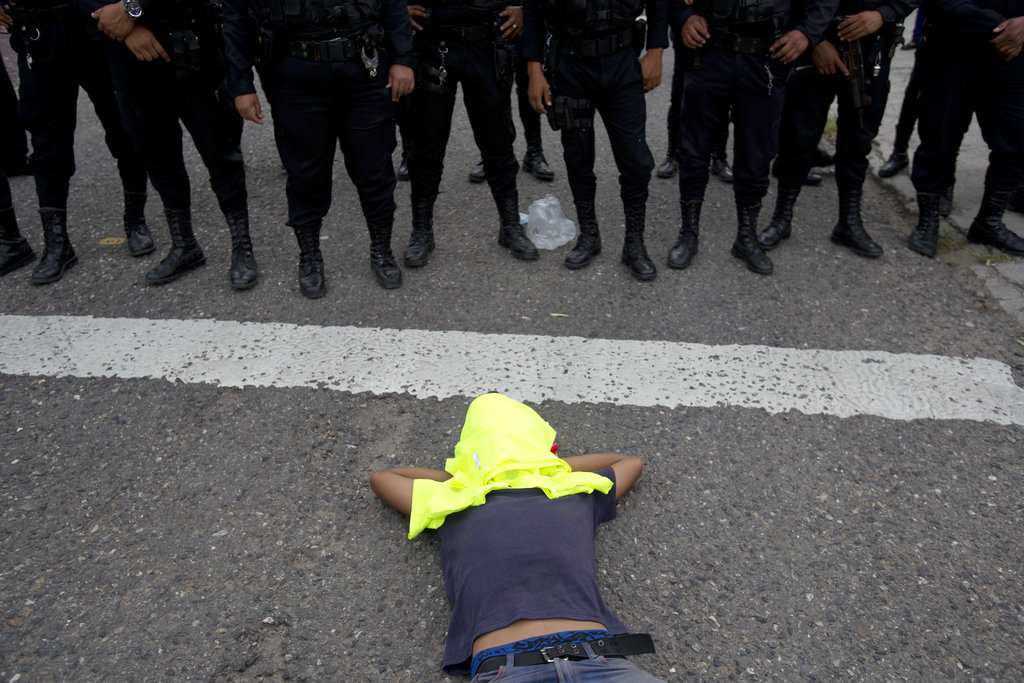
A Honduran migrant rests at the feet of Guatemalan police who temporarily block the road to keep him and his caravan from advancing, in Esquipulas, Guatemala. AP
Local media coverage prompted hundreds more to join, and Dunia Montoya, a volunteer assisting the migrants, estimated on Sunday that the group had grown to at least 1,600 people. Police gave their own estimate of around 2,000 on Monday.
The caravan formed a day after US Vice-President Mike Pence urged the presidents of Honduras, El Salvador and Guatemala to persuade their citizens to stay home and not put their families in danger by undertaking the risky journey to the US.
In April, President Donald Trump threatened in April to withdraw foreign aid from Honduras and countries that allowed transit for a similar caravan that set out from the Central American country. That caravan dwindled as the group approached the US border, with some giving up along the way and others splitting off to try to cross on their own.
Historian Dana Frank, an expert on human rights and US policy in Honduras, said the caravan could have political implications in the United States less than a month before the midterm elections.
“Whatever the caravan’s origins, some in the United States will be quick to raise alarms about a supposed dangerous immigrant invasion, and use that to try to influence the upcoming US elections,” Frank said. “Others will view these migrants with compassion and as further evidence of the need for comprehensive immigration reform.”
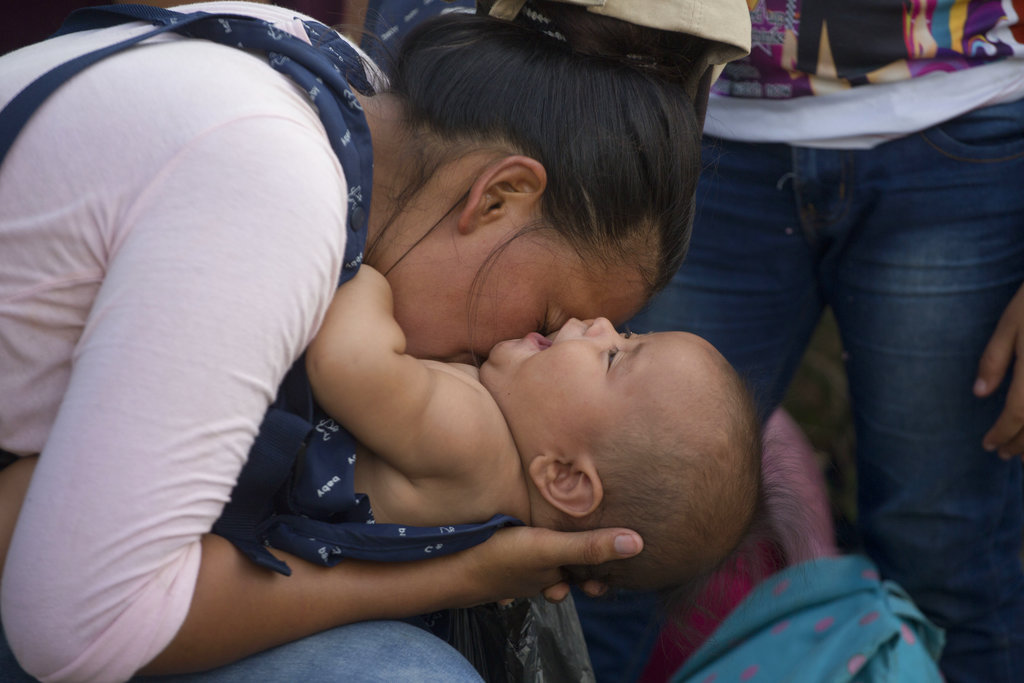
Daisy Zuniga, a migrant from Puerto Cortez, Honduras, plays with her 4-month-old baby Glinder in Chiquimula, Guatemala. AP
Frank added that the caravan’s rapid growth “underscores quite how desperate the Honduran people are — that they’d begin walking toward refuge in the United States with only a day back full of belongings”.
In San Pedro Sula, where the procession started, sociologist Jenny Arguello said authorities wanted to make the mass migration out to be a political event, but it was just poor people fleeing violence.
“From my community, 20 went and one neighbour came back sad with his little backpack because when he arrived they had already left,” Arguello said. “You see that the need to leave is the priority. The people have already made up their minds and just hearing of the possibility they take off.”
Honduras is largely dominated by murderous gangs that prey on families and businesses, and routinely sees homicide rates that are among the highest in the world.
Late on Monday, Mexico’s immigration authority said in a statement directed at the caravan that agents would have to review them individually at the border and those who did not meet requirements would not be allowed to enter.
Katie Waldman, a US Department of Homeland Security spokesperson, said in a statement that the caravan was “what we see day-in and day-out at the border as a result of well-advertised and well-known catch-and-release loopholes”.

